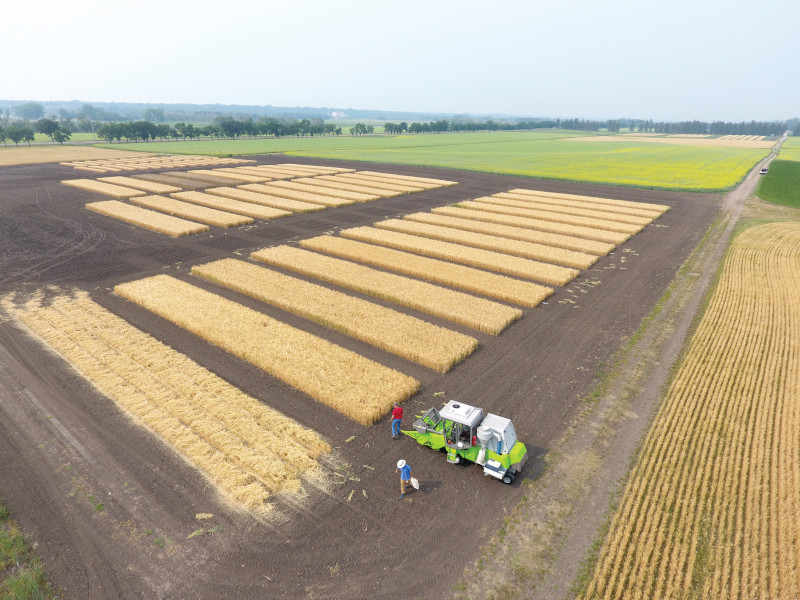Boosting the Organic Sector
The Organic Federation of Canada will receive an investment of $8 million to lead an organic science cluster that will help the sector respond to market demand and capture new opportunities, according to an announcement by Agriculture Minister Gerry Ritz and Member of the Parliament Scott Armstrong.
“The Canadian organic sector continues to grow at an impressive rate,” says Ritz. “Investments like this in research and development span the entire value chain, from production through to the consumer, and support the competitiveness, growth and prosperity of the organic sector and our overall economy.”
The cluster brings the best and brightest together — from academia, government and industry — to focus on cutting-edge research and development that will improve the organic sector’s competitiveness, market potential, adaptability and sustainability. This will be accomplished through a series of activities focused on expanding organic production in response to market demand for hops, sprouts, ornamental potted plants and poultry.
Two hundred collaborating scientists will work on several priorities, including crop breeding for improved cultivars; developing new reduced tillage systems for organic crops; improving soil health; and developing new approaches to better manage crop pests, diseases and livestock parasites.
This investment is made through the industry-led research and development stream of Agriculture and Agri-Food Canada’s AgriInnovation Program, a five-year, up to $698 million initiative under Growing Forward 2.
Cereals Canada Shapes Strategy
Cereals Canada released its inaugural strategic planning document, which sets out the vision and mission for the organization and defines a path forward for sustainable profitability for the entire value chain.
Approved by the board of directors, the strategic plan is built on input gathered from a broad spectrum of organizations and individuals from across the value chain. Cereals Canada has three priorities as it relates to Canadian cereals:
- Provide leadership for the cereals industry.
- Build and implement a market development plan.
- Shape the environment for innovation.
“Our overarching goal is to ensure that all links in the Canadian cereals value chain are profitable,” says Greg Porozni, Cereals Canada board chair. “We will accomplish this by meeting customer demand for consistent, high-value quality products. The cereals sector in Canada is in a period of transition that presents the industry with a unique opportunity to create the environment that will allow Canada to realize its full potential in international and domestic markets.”
Low Public Awareness for Agriculture
On behalf of Agriculture and Agri-Food Canada, the Strategy Council conducted a qualitative study to gauge the public’s perception of agriculture. The study was designed to better understand current perceptions of the sector, views on the role and efficacy of government investment in agricultural innovation and science, the effectiveness of AAFC’s communications tools and tactics, and how to best communicate with the public. According to the report, “findings form this series of focus groups clearly indicate a relatively low level of awareness, particularly among urban dwellers, of the current state of the sector and its contribution to provincial, regional and the national economy.” The report also highlighted that when participants were asked to think about the sector, they tended to envision farms, livestock, crops, green pastures, endless wheat fields and prairie landscapes — not the more modern, progressive and innovative agriculture that exists today.














